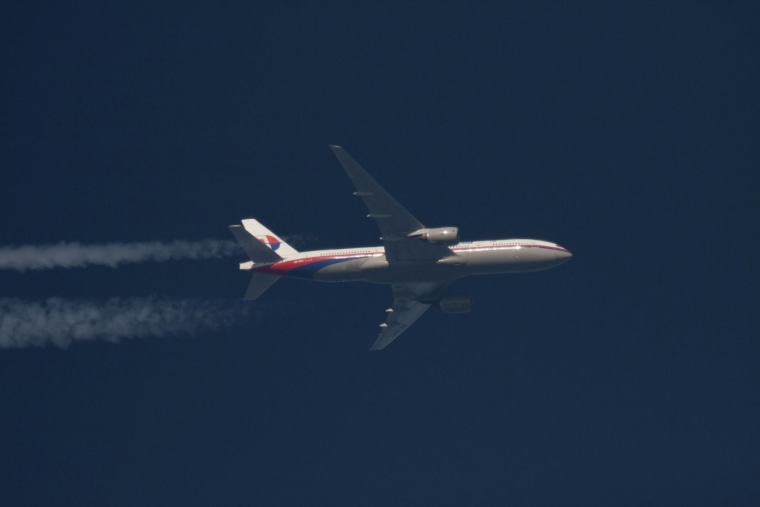LONDON - The main ship charged with finding Flight MH370 has still not yet looked in the area of ocean where the jet likely crashed, according to satellite experts.
The Australian vessel Ocean Shield has been towing the U.S. Navy-owned Bluefin-21, a robotic submarine designed to listen to pings from a jet's black-box recorder.
Sign up for breaking news alerts from NBC News
British satellite firm Inmarsat identified a "hot spot" in the southern Indian Ocean where they believe the Malaysia Airlines aircraft crashed after running out of fuel. Ocean Shield was sent to the area but it never arrived, after hearing four mysterious underwater noises further north that investigators believed were black-box pings but were later discredited.
"It was by no means an unrealistic location but it was further to the northeast than our area of highest probability," Inmarsat's Chris Ashton told the BBC for a documentary due to be aired Tuesday night.
The jet disappeared on March 8 while flying from Kuala Lumpur to Beijing. It had 239 passengers and crew aboard, most of them Chinese nationals.
The search area has been refined numerous times and is set to be the most expensive in history. The hunt is currently on hold in preparation for a "bathymetric survey," a detailed map of the ocean floor that will include the "hot spot" suggested by Inmarsat as well as other areas.

Following the discovery of the now-discredited pings, searchers spent two months focusing on a 330-square mile area of seabed, which ultimately proved fruitless. The vast area set to be mapped in the bathymetric survey will cover a long arc of ocean with an initial area of more than 23,000 square miles, about the size of West Virginia.
In a statement responding to the BBC's report, Australia’s Joint Agency Coordination Centre said: "The four signals [pings] taken together constituted the most promising lead in the search for MH370 and it was a lead that needed to be pursued until completion so the search team could either discount or confirm the area as the final resting place of MH370."
Inmarsat spokesperson Katie Potts told NBC News that the BBC documentary was filmed several months ago, and that Ashton's comments referred only to the section of the search carried out by Ocean Shield. She said the company could not comment on other elements of the search carried out by other ships or aircraft.